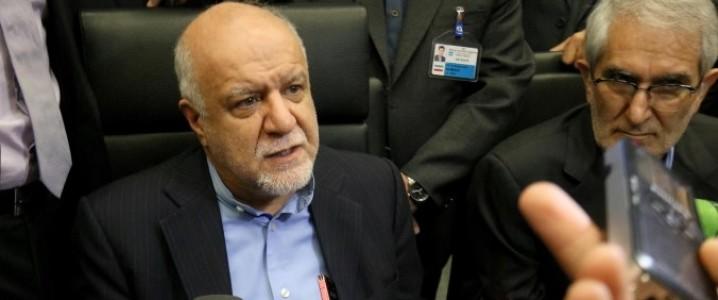Twitter Blocks Iran Oil Minister’s Account
Tyler Durden
Mon, 11/16/2020 – 19:25
Authored by Charles Kennedy via OilPrice.com,
Twitter has blocked the official account of Bijan Zanganeh, the Petroleum Minister of Iran, IRNA has reported.
The U.S. government slapped sanctions Ion Zanganeh in late October, as part of a round of sanctions targeting the country’s oil industry specifically, including the National Iranian Oil Company and the National Iranian Tanker Company.
These were sanctioned for “their financial support to Iran’s Islamic Revolutionary Guard Corps-Qods Force (IRGC-QF),” according to a Treasury statement.
Senior NIOC and NITC personnel have worked closely with Rostam Ghasemi, a senior IRGC-QF official and former Minister of Petroleum who was designated in 2019, and who has assumed a portion of former IRGC-QF Commander Qasem Soleimani’s role in “facilitating shipments of oil and petroleum products for the financial benefit of the IRGC-QF,” the Treasury Department went on to say in October.
“OFAC is also designating multiple entities and individuals associated with the Ministry of Petroleum, NIOC, and NITC, including front companies, subsidiaries, and senior executives. In addition, OFAC is designating four persons involved in the recent sale of Iranian gasoline to the illegitimate Maduro regime in Venezuela.”
In response to the statement, Zanganeh tweeted, “Imposition of sanctions on me and my colleagues is a passive reaction to the failure of Washington’s policy of reducing [Iran’s] crude oil exports to zero. The era of unilateralism is over in the world. Iran’s oil industry will not be hamstrung.”
The minister added at the time that he owned no assets abroad, so he was impervious to sanctions.
The reason for Twitter’s move remains a mystery. Its rules of conduct include account suspensions in case of promotion of terrorism or violence, abuse and harassment, and hateful conduct, among others.
Despite Washington’s efforts, Iran continues to export oil, according to data presented by a government official earlier this month: the daily average since March has been about 600,000 to 700,000 barrels. The country has had to become inventive, forging documents about the origin of the crude, using ship-to-ship transfers at sea, and switching off tanker transponders to cloak their destination.
